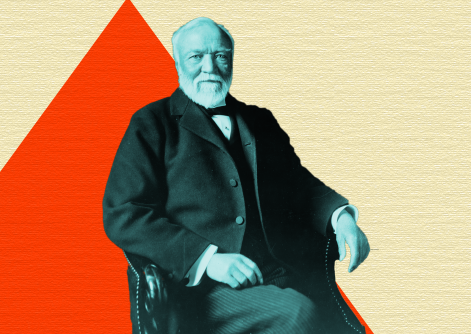Perhaps you’ve met a cantankerous donor. They’re not rare on the ground, are they? The world recently lost a prominent and very interesting one, the hedge fund titan Robert Wilson, who in late December leapt off his Upper West Side apartment’s balcony to his death because he had decided he didn’t want to keep living after a stroke.
This eccentric 87-year-old gentleman left a note, a friend said, which explained that “he had had a great life, and done all the things he wanted to, and that the way he chose to die was nothing to be ashamed of and shouldn’t be kept secret.” His note also listed appointments that would have to be cancelled. Another quirk, common among donors: Wilson not only eschewed limousines but cabs as well (unless someone else would go dutch), preferring to take Gotham’s subways instead.
He gave his money away at a terrific pace and took care before his leap to ensure that his last $100 million would go to one of his favorite causes, the Environmental Defense Fund. He had already given away something on the order of $700 million. In another mark of his unusual character, Wilson may be the only person ever to give millions to both the ACLU and the Archdiocese of New York’s schools. Did I mention that he was an openly gay atheist, too?
It’s rumored that another New York financier and thoughtful donor, Roger Hertog, who overlapped with Wilson on the board of the Manhattan Institute, may have played an important role in persuading Wilson to practice “giving while living.”
Cantankerous Wilson may have been, but generous he certainly was. This childless man gave tens of millions to Catholic parochial schools and also provided them with some strategic wisdom: He was disturbed to learn that Catholic schools, which have been closing at a terrible rate in recent decades—especially in inner cities where they’re most needed—usually have no programs to encourage their alumni to give.
So in 2009 Wilson persuaded multiple dioceses in the New York area to fill this neglected entrepreneurial gap by starting the Catholic Alumni Partnership, to which he contributed millions more dollars. The effort now works with over 350 schools that serve over 100,000 students. So far, it has raised over $5 million from the schools’ alumni (see the website here; Facebook page here).
For a pungent taste of Wilson’s style, read this exchange of e-mails he had with Bill Gates, debating whether Gates’ “Giving Pledge” is a good idea (a friend of Wilson gave the correspondence to BuzzFeed). I’m not sure Wilson is right on every point, but his tart prose shows that eccentricity and even grumpiness in a donor can be signs of independent thinking that can benefit grantees and grantors alike. By the way, I note that Wilson “outs” himself as a non-liberal, something no obituary dared to reveal.
Here are some excerpts:
From: Bill Gates
To: Robert W. Wilson
Sent: Wednesday, June 16, 2010 1:03 PM
Subject: Giving Pledge discussion
Robert, I’m writing to let you know about an idea we’re calling the “Giving Pledge” that came out of a number of conversations that Melinda and Warren and I have had with a number of people over the past year.
The idea is that when you take the Giving Pledge, you agree to give the majority of your wealth to charity during your lifetime or through your will. The Giving Pledge will be public, and pledges will be posted on a website (www.givingpledge.org). A pledge can consist of a single sentence or a longer explanation of your philosophy in respect to philanthropy.
By bringing together the people who take the Giving Pledge in various ways, including at an annual event, we hope we can all learn from each other. The Giving Pledge is more of a moral commitment than anything else. It is not a legal contract, and it does not involve pooling money or supporting a particular set of causes.
… Since your generosity has inspired so many and you have clearly already lived this Pledge, I am writing to see if you would be willing to help lead this effort and join us in encouraging others….
From: Robert W. Wilson
Sent: Wednesday, June 16, 2010 12:16 PM
To: Bill Gates
Mr. Gates, I decided more than ten years ago to try to give away 70% of my net worth and have already given away one-half billion dollars. (I’ve never been a Forbes 400) So I really don’t have to take the pledge.
Your “Giving Pledge” has a loophole that renders it practically worthless, namely permitting pledgees to simply name charities in their wills. I have found that most billionaires or near billionaires hate giving large sums of money away while alive and instead set up family-controlled foundations to do it for them after death. And these foundations become, more often than not, bureaucracy-ridden sluggards. These rich are delighted to toss off a few million a year in order to remain socially acceptable. But that’s it.
I’m going to stay far away from your effort. But thanks for thinking of me. Cordially
From: Bill Gates
To: Robert W. Wilson
Sent: Saturday, June 19, 2010 1:23 AM
What you are doing is fantastic. You are giving a high percentage and doing it in a very efficient way to causes you have thought deeply about.
The key benefit of your getting involved in the pledge would be having people learn more from your example both in your pledge letter and your participation in the yearly events. We believe the more people we get involved the stronger the effort will be and the more people who will join.
You are right that the Giving Pledge allows people to join in who don’t give until their will comes into action. Since people don’t know when they will die it is a bit difficult to make the timing of their giving super specific.
You are also right that some people set up foundations without a strong focus or leadership and with high overhead.
One of our goals with the Giving Pledge is to make it more common for people to consider their philanthropic plans at a much younger age. A number of people we have talked to about the pledge have said that they are thinking through their plans now instead of waiting because of the pledge. People often put off thinking about giving because it involves considering when they die and forces them to pick particular causes and decide how much to leave for each family member. The causes that are easy to pick are often not the ones that have the biggest impact on reducing inequity. We aren’t trying to homogenize the giving but we do think people getting exposures to others who have thought a lot about the right causes will improve the overall quality of giving.
So it is fine for you to stay out but I want you to know that we agree with your views on philanthropy and we would benefit from your joining in. If you are willing to talk further about this I would love to chat on the phone sometime.
From: Robert W. Wilson
To: Bill Gates
Sent: Saturday, June 19, 2010 4:15 PM
Mr. Gates, thanks much for your email. But as my previous email indicated, I wouldn’t have much fun or add much value to this group. You, being a liberal, think you can change people more than I think.
But let me make one comment. When I talk to young people who seem destined for great success, I tell them to forget about charities and giving. Concentrate on your family and getting rich—which I found very hard work. I personally and the world at large are very glad you were more interested in computer software than the underprivileged when you were young. And don’t forget that those who don’t make money never become philanthropists.
When rich people reach 50 and are beginning to slow down is the time to begin engaging them in philanthropy.
I’d greatly appreciate just leaving it at that. Cordially
FOOTNOTE: One of the best profiles of Wilson is contained in a Philanthropy magazine article by Christopher Levenick that reports on non-traditional donors to Catholic schools. Levenick also co-authored with Stephanie Saroki a donor’s guide to Saving America’s Urban Catholic Schools (available free here). IUPUI has the stats on Wilson’s amazing record of giving.






